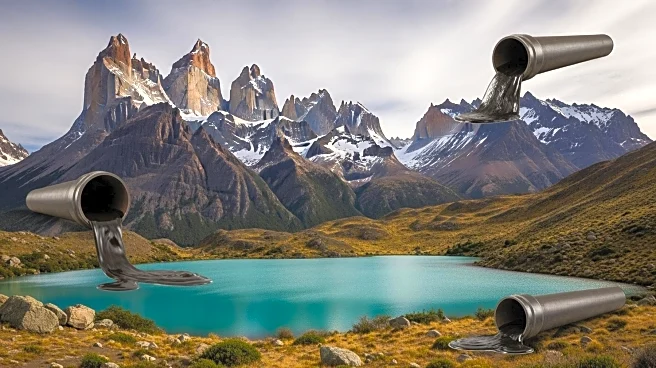What's Happening?
The village of El Chaltén in Argentina is grappling with sewage management failures that have led to pollution in glacier-fed rivers. A court ruling has mandated upgrades to the waste systems by January 2025, following a collective lawsuit by residents. The sewage plant has been operating without proper monitoring, causing untreated waste to flow into waterways, raising health concerns. The ruling is supported by the Escazú agreement, a regional treaty on environmental rights, highlighting the need for improved waste management practices.
Why It's Important?
The sewage management issues in El Chaltén have significant implications for public health and environmental conservation. The pollution threatens the pristine glacier-fed rivers, which are vital for the local ecosystem and tourism industry. The court ruling underscores the importance of environmental accountability and could set a precedent for other regions facing similar challenges. The situation highlights the need for robust infrastructure to support growing populations and tourism, ensuring sustainable development and conservation of natural resources.
What's Next?
Authorities in El Chaltén are expected to implement the court-mandated upgrades to the sewage systems by January 2025. This will involve expanding treatment plant capacity and improving waste monitoring practices. The community and environmental groups will likely continue to advocate for stronger enforcement and oversight to prevent future pollution. The situation may prompt further legal actions and policy changes to address environmental concerns in protected areas.
Beyond the Headlines
The case in El Chaltén highlights the broader issue of infrastructure development in rapidly growing tourist destinations. It raises questions about balancing economic growth with environmental sustainability and the role of local communities in advocating for their rights.









